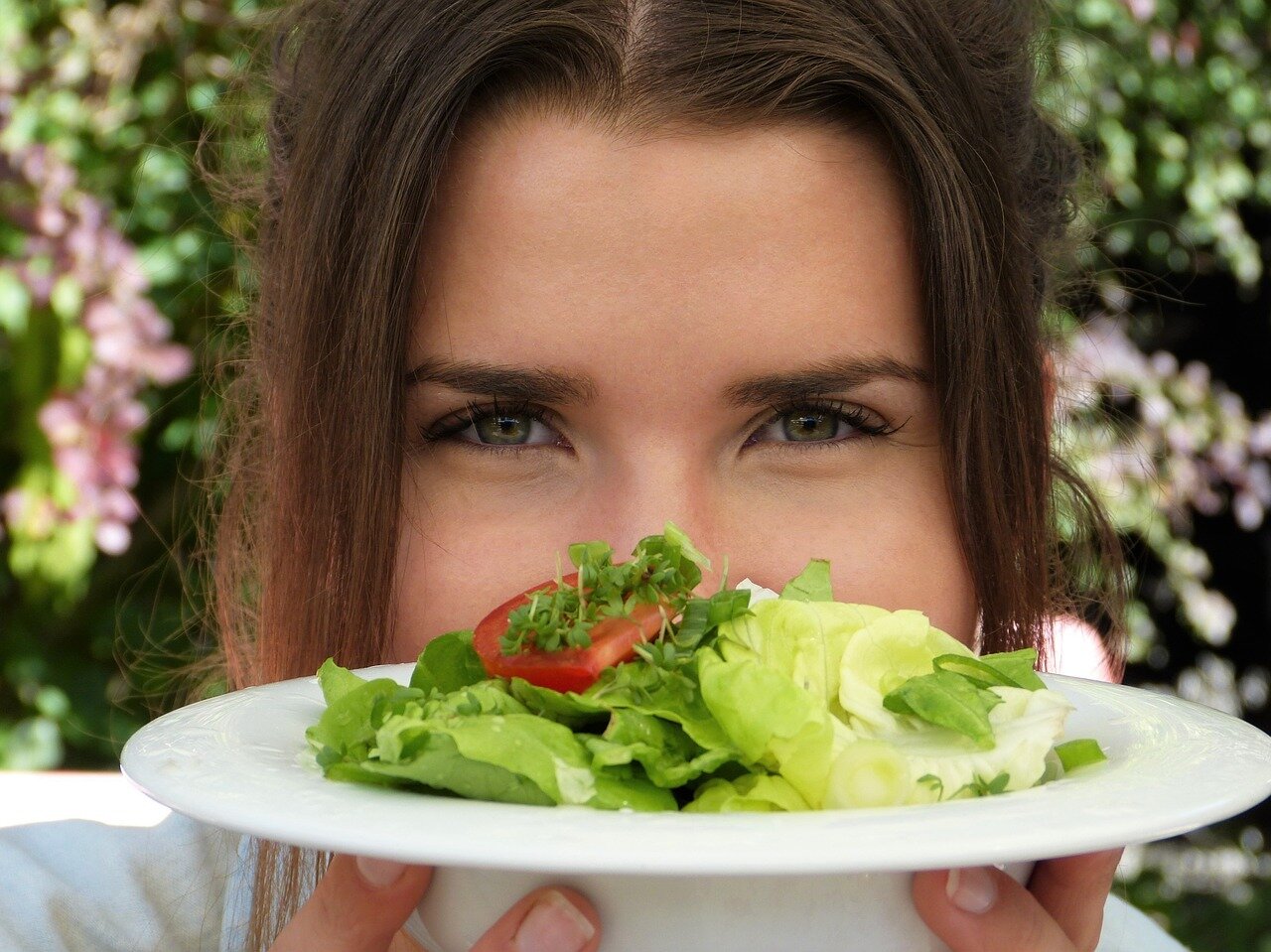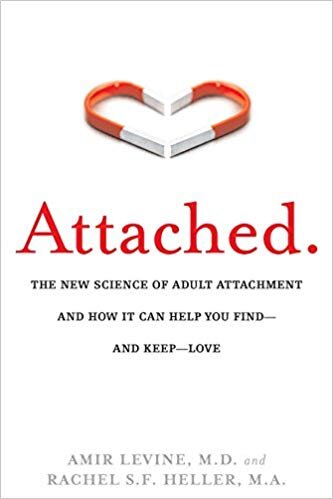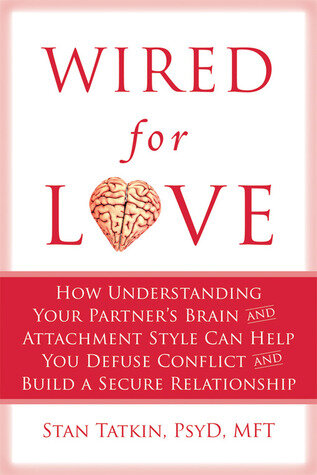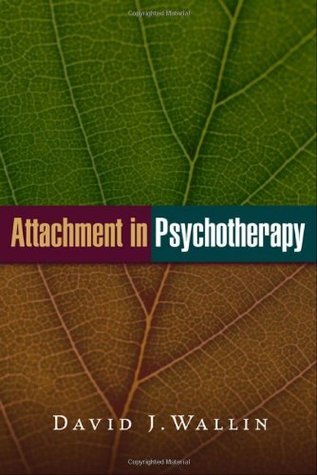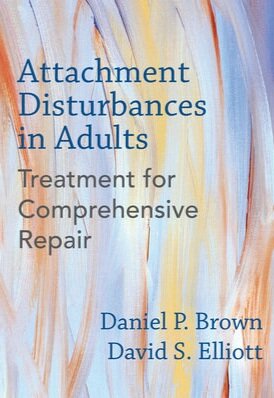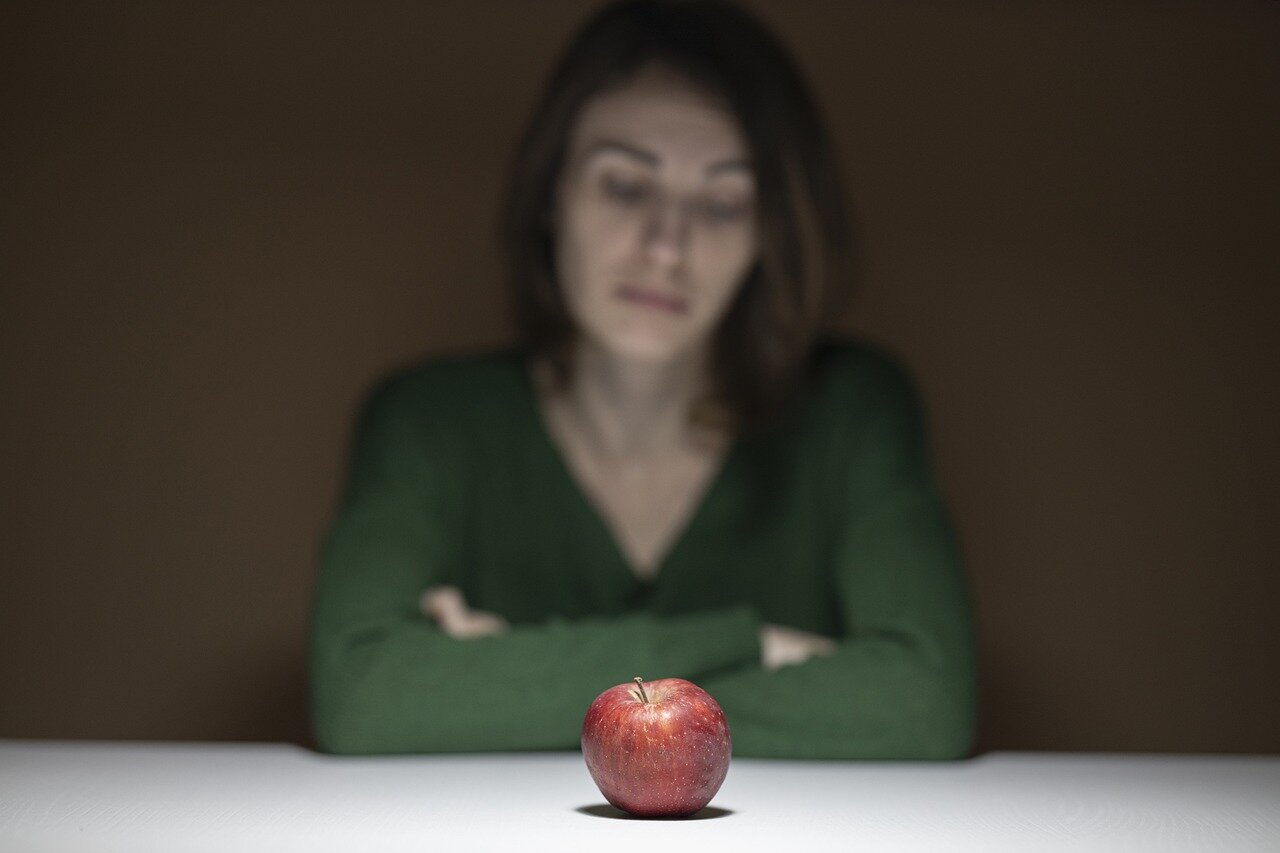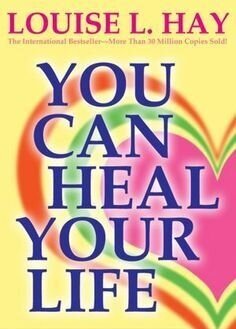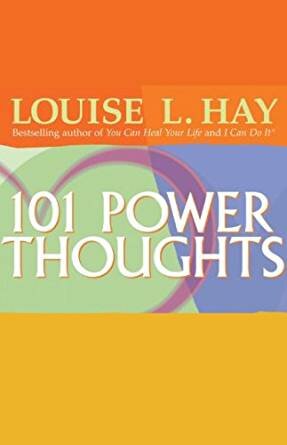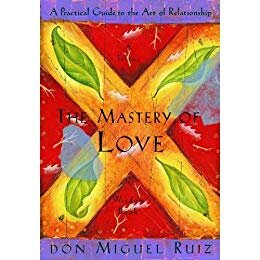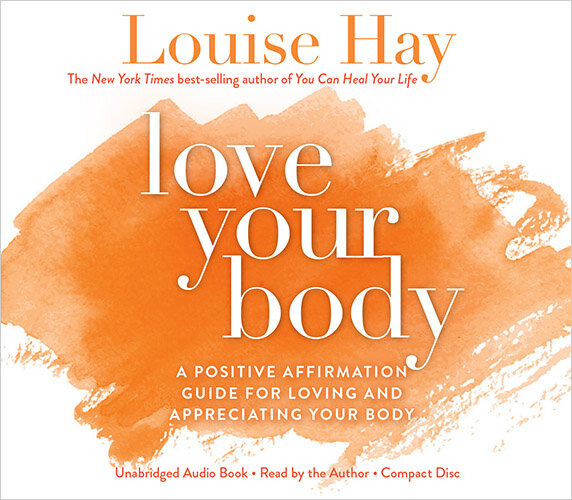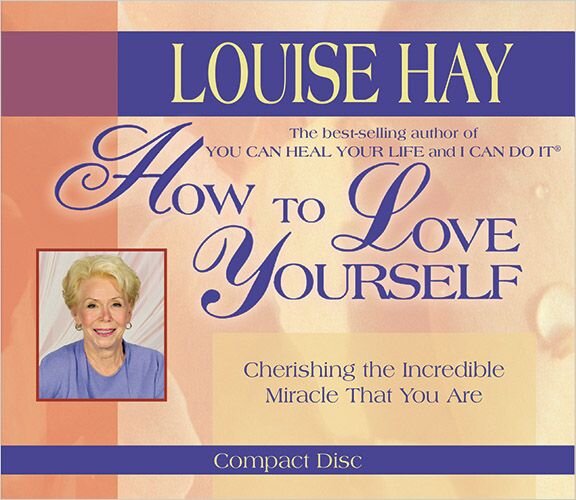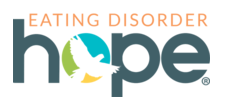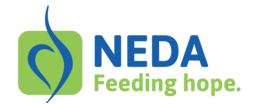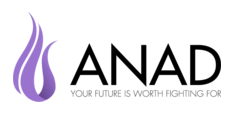a fine line
I want to talk about an important topic that has been avoided in my community for a long time. The fine line between raw veganism and eating disorders which includes behaviors such as excessive cleansing, obsession with detox, under eating, calorie restriction, and both extreme water and dry fasting. These are unfortunately a big part of the reason why many people cannot sustain a 100% vegan or raw food diet long term. After a period of restriction, the body will always rebound and may even gain weight to protect itself. People then get stuck in a restrict and binge cycle where they cannot seem to find balance, even on a “healthy diet”. I see too many people go off the deep end with restrictive behaviors all in the name of “healing” and now someone has just died because they pushed their body too far with dry fasting. When will we stop chasing purity and perfection and which of these behaviors are considered eating disorders?
What is an eating disorder?
An eating disorder is categorized as a mental illness.
When people experience severe disturbances in their eating behaviors related to their thoughts and emotions, they most likely are dealing with an eating disorder. People with eating disorders typically become preoccupied with food, body weight, and/or body shape. In severe cases, eating disorders can cause serious health consequences and may even result in death if left untreated. Those with eating disorders can have a variety of symptoms, however, most include the severe restriction of food, food binges, or purging behaviors like vomiting or over exercising. Although eating disorders can affect people of any gender at any life stage, they're most often reported in adolescents and young women. In fact, up to 13% of youth may experience at least one eating disorder by the age of 20. Below are the most common eating disorders recognized by the DSM (The Diagnostic and Statistical Manual of Mental Disorders).
Anorexia nervosa
Bulimia nervosa
Binge eating disorder
Pica
Rumination disorder
Avoidant/restrictive food intake disorder
Many people assume that “orthorexia” is an eating disorder but it has not be recognized by the DSM. Orthorexia is a term for a condition that includes symptoms of obsessive behavior in pursuit of a healthy and pure diet. A person with orthorexia will be obsessed with maintaining the perfect diet, rather than achieving an ideal weight or a balanced lifestyle. People with orthorexic behaviors also display symptoms of obsessive compulsive disorder.
is veganism/raw veganism an eating disorder?
“Veganism is a philosophy and way of living which seeks to exclude—as far as is possible and practicable—all forms of exploitation of, and cruelty to, animals for food, clothing or any other purpose; and by extension, promotes the development and use of animal-free alternatives for the benefit of animals, humans and the environment. In dietary terms it denotes the practice of dispensing with all products derived wholly or partly from animals,” as stated by The Vegan Society. This way of living excludes the consumption of animal foods such as meat (including fish, shellfish and insects), dairy, eggs and honey - as well as avoiding animal-derived materials, products tested on animals and places that use animals for entertainment.
Veganism is about compassion, not restriction.
When it comes to a vegan diet, people tend to focus on what they can’t eat over what they can. It’s a glass half full or half empty perspective. When I first came to veganism, I had to learn about and try all the foods that since I was heavy into meat & dairy products and that was the bulk of my meals. Think about it, veganism excludes a handful of animals but it includes thousands of different plant foods that have been proven to improve health and longevity. Watch the video below from The Vegan Activist on the plethora of options that vegans have.
When it comes to a raw vegan diet, people may feel restricted since they are limited to just fresh fruits, vegetables, nuts, seeds, sea vegetables, and dehydrated foods. Lets be honest, the world that we live in doesn’t always support this way of eating which is why I tell people who are interested in this way of eating to not worry about perfection or percentages when they are starting out. It is extremely easy to under eat on a raw food diet so don’t risk your health just to stay raw. 100% raw is not always 100% healthy (depending on what you eat) and is certainly not is it for everybody. The more raw foods you eat though, the more benefits you will experience. Don’t shoot for perfection as not everyone eats exactly like they portray online. Never compare yourself online with people who may be projecting a false of reality. Constantly comparing yourself to others who are many years into this lifestyle can be damaging to your self-esteem and can even create even more disordered eating patterns.
Let’s get one thing straight, veganism and raw veganism are not eating disorders by default. There are plenty of vegans and raw vegans who are thriving on this lifestyle but not all of them are on YouTube or successful social media influencers. Unfortunately, it’s the people who gain popularity online that tend to share restrictive behaviors such as under eating, excessive juice cleanses, and long water fasts, attracting people which restrict themselves for other reasons than healing. After doing a hashtag search on #rawveganism, I have found many people who their extremely thin bodies while offering coaching sessions to the public. This is not a healthy depiction of a balanced vegan and raw vegan lifestyle. There are “crazies” in every community so we cannot blame an entire movement for the restrictive habits of a few people in it.
where do they come from?
The relationship you have with yourself sets the tone for every relationship you will have in your life, including food.
Eating disorders tend to start in adolescence when we learn how to eat on our own independently from our parents but they can still happen to anyone at any time or phase in their life. They typically stem from a lack of self love, healthy coping skills to negative events, and unhealthy attachment styles in relationships. They can also develop in direct response to emotional pain from conflict, low self-esteem, anxiety, depression, stress, or trauma. The four child/adult attachment styles are:
Secure – Autonomous. Low on avoidance and low on anxiety. These people are comfortable with intimacy and not worried about rejection or preoccupied with the relationship. It is easy for them to get close with others, and they are comfortable depending on them and having them depend on me. They don’t worry about being abandoned or about someone getting too close to them.
Avoidant – Dismissing. High on avoidance and low on anxiety. These people are uncomfortable with closeness and primarily values independence and freedom. They are usually not worried about partner’s availability. They are uncomfortable getting close with others. They find it difficult to trust and depend on others and prefer that others do not depend on them. It is very important that that they feel independent and self-sufficient. Their partner typically wants them to be more intimate than they are comfortable being.
Anxious – Preoccupied. Low on avoidance and high on anxiety. These people crave closeness and intimacy with others and are very insecure about their relationship. They want to be extremely emotionally close with others, but others are reluctant to get as close as they would like. They often worry that their partner doesn’t love or value them and will abandon them. Their inordinate need for closeness tends to scare people away.
Disorganized (both Anxious and Avoidant) – Unresolved. High on avoidance and high on anxiety. These people are uncomfortable with intimacy and worried about partner’s commitment and love. They are uncomfortable getting close to others and find it difficult to trust and depend on them. They worry I they will get hurt if they get close to their partner.
You can learn more about attachment with regards to relationships in the following books below.
HOW DO you KNOW IF you HAVE an eating disorder?
If you think you may be experiencing an eating disorder, honestly ask yourself…
Do I feel anxious, fearful, out of control, and/or obsessed with food?
Do I feel guilt or shame after eating food?
Do I have distorted beliefs about what my body looks like?
Have I experienced binge eating and/or the uncontrollable urge to keep eating?
Have I purged my food after eating it?
Am I excessively exercising because I ate too much food?
Do I have a fear of gaining weight?
Do I eat alone or in secret from others?
If you answered yes to any of these questions, then you may have an issue when it comes to eating.
There is no reason to feel ashamed about having an issue with eating as many people are dealing with this every day. Most of the time, eating disorders are paired with mental health issues such as obsessive compulsive disorder, major depression, anxiety, and post traumatic stress disorder so take a closer look at what is going on in your personal life and address any unresolved trauma from your past. According to eating disorders statistics estimated by the National Eating Disorder Association, in the USA up to 30 million people suffer from an eating disorder such as anorexia nervosa, bulimia nervosa or binge eating disorder. Worldwide the figure is about 70 million!
how to heal
The first step in healing an eating disorder is to become fully aware of your issue and take full responsibility for creating it. This can be an extremely difficult step for some since we tend to place blame on others or situations that caused our suffering. We are not victims and by becoming conscious of our issue, we claim our power back. The second and most important step is to reach out to others and ask for help. You may need to do extensive research to find what exactly you may need but eating disorder treatments need to involve these three people:
You’ll need a medical doctor for testing, a therapist for counseling, and a nutritionist for nutritional therapy.
There are many therapies to look into and they should all address the following:
Medical and/or health problems
Self love, self esteem, and self confidence
Psychological effects
Nutritional needs
Interpersonal relationships
Changing your diet does not automatically fix an eating disorder as this does not address the underlying issue of why you chose to restrict yourself in the first place. There are people who eat meat who have eating disorders and there are people who don’t eat meat who have eating disorders. Mental illness doesn’t choose a specific type of person as it affects 1 in 4 individuals at least once in their lifetime.
Healing takes time.
If you are working on healing something in your life, whether that’s emotional or physical, please understand that it takes time. How long it takes to heal depends on each person's health history, thought patterns and current lifestyle. Don’t wait for a light bulb moment to start your healing journey and don’t put such high expectations on your healing and future self. Acknowledge small victories and progress, not perfection. Keep reaching out to others to find the right kind of help you need and deserve. It may be a frustrating process, and at times you may even fail. Just know that healing isn’t always easy but it’s worth it and necessary for you to live a healthy and happy life!
Weight matters
A severely low or high body weight is not healthy.
Regardless if you are trying to heal something, no one needs to become underweight or overweight to heal the body. I made the mistake of getting down to 87 pounds to try an heal my painful periods. I thought water fasting would be the ticket to my healing but soon realized that restriction can imbalance your body and even create more issues like body dismorphia and confusion of what a healthy weight actually is. You can read more about my water fasting experience here.
Me at my lowest weight as an adult after a 26 day water fast
The negative health implications of maintaining a low body weight over a long period of time include malnutrition, deficiencies, decreased immune function, increase risk of osteoporosis, anemia, and/or dental problems. Many women report losing their period on a vegan and raw diet because they have restricted their calorie and fat intake which is not recommended. I personally have never lost my period in my entire 8+ years as a vegan because the only time I have ever restricted myself on this lifestyle was one month on a water fast. Negative health implications of mainining a high body weight over time includes type 2 diabetes, high blood pressure, heart disease, stroke, certain types of cancer, sleep apnea, osteoarthritis, fatty liver disease, and kidney disease. America is the most obese nation in the world and consumes the most animal products, about 120kg of meat per person each year. Coincidence? I think not. Always aim to be at a healthy BMI if you want to maintain physical and emotional health.
calories matter
The #1 reason why people fail on a vegan, raw, or fruitarian diet is because they are not eating sufficient calories for their age, gender, and activity level.
Contrary to popular belief, we can still heal our bodies on a physical and emotional level by consuming enough calories. There is no safe and healthy reason to restrict yourself from food or sufficient calories. By restricting your nutrient intake, you are essentially weakening your body over which will never equate to healing. Healing the body comes from a obtaining a correct nutritional balance and to get in enough nutrients, we need to consume enough calories. We’ve been told that to lose weight, we need to eat less and exercise more. Calories in, calories out. A caloric deficiency is the only way to lose weight. This type of restrictive advice is what’s responsible for America having an obesity epidemic. Although the right type of diet is important, the amount of calories you consume each day are just as important.
Estimated caloric need per day, by age, sex, and physical activity level:
[a] Sedentary means a lifestyle that includes only the physical activity of independent living.
[b] Moderately Active means a lifestyle that includes physical activity equivalent to walking about 1.5 to 3 miles per day at 3 to 4 miles per hour, in addition to the activities of independent living.
[c] Active means a lifestyle that includes physical activity equivalent to walking more than 3 miles per day at 3 to 4 miles per hour, in addition to the activities of independent living.
[d] Estimates for females do not include women who are pregnant or breastfeeding.
it’s more than just food
Yes, nutrition is a large part in healing a mental health issue like an eating disorder but it is not the only part. How you eat, how you think, what you surround yourself with, what time of environment are you in, what kind of support system you have, and how you live your life is essential when it comes to healing. People with eating disorders use food to deal with uncomfortable or painful emotions. Restricting food is used to take control over a situation they may feel powerless in. Overeating or binge eating temporarily soothes sadness, anger, or loneliness. Purging is used to combat feelings of helplessness and self-loathing. Over time, people with an eating disorder lose the ability to see themselves objectively and obsessions over food and weight come to dominate everything else in their lives. Their road to recovery begins by identifying the underlying issues that drive their eating disorder and finding healthier ways to cope with their emotional pain.
self love practices
Do you know how to properly love yourself? If not, then work on each of the following:
Stop criticizing yourself: You are doing the best you can, self criticism doesn't help. You can find plenty of people out in the world to criticize you, don't be one of them.
Forgive yourself: Let the past go. Holding on to it only keeps you stuck.
Connect with your inner child: Parent, support and care for yourself.
Don't scare yourself: Choose more positive, peaceful, hopeful and optimistic thoughts.
Accept yourself now: Love your negatives and find new positive ways to fulfill those needs.
Be mindful with yourself: Do one thing at a time and become more present and aware of everything that you do.
Let go of expectations: Appreciate who you are and what you have right now.
Love yourself now: Don't wait until you have the perfect body, job or partner. Do it now as best as you possibly can, like you life depended on it, because it does!
Books that can help you cultivate more self love:
affirmations
Every thought you think and every word you speak is an affirmation. Unfortunately most of our self dialogue is negative and does not create positive experiences for us. We need to retrain our thinking and speaking if we want to change our lives and affirmations opens the way and the beginning point of change. Affirmative statements that go beyond your current reality help to plant seeds into a fertile ground to manifest a happy and prosperous life. It is always important to say affirmations in present tense such as I am or I have then express gratitude and praise for receiving. God/Universe takes your thoughts and words literally to help give you exactly what you ask for. This is another reason to always keep a happy and positive mental atmosphere.
Affirmations for those with eating disorders:
I am worthy of nourishing my body.
I am healthy, beautiful, and completely whole just as I am.
I love and approve of myself.
I love my body and treat it with both love and respect.
Everyday I become stronger and happier.
i deserve to be happy and to fulfill my dreams
www.rawveganginger.com
I am worthy of love from myself and others.
Taking care of my health is an investment in my life.
I am not afraid to make any mistakes.
I have everything that I need to take care of myself inside of me.
I choose to be free from all unhealthy thoughts, choices, and patterns.
recovery resources
I have obtained a Bachelors in Psychology in 2007 from Oakland University, I have counseling work experience, and am currently studying to become a Holistic Nutritionist. If you would like to work with me one on one, please visit my coaching page and scheduling page. I’m here for you!
SPEAK UP
So how can we help others who have eating disorders? We speak up. We don’t enable unhealthy behaviors and patterns, we stop them in their tracks. Speaking up about others is not "body shaming" especially when your intention is coming from a place of love and concern for the well being of others and the perception of others. It's the people who are apathetic and who don't speak up who are the ones enabling unhealthy behavior. While you can’t force a person with an eating disorder to change, you can offer your support and encourage throughout their treatment. This can make a huge difference in someone’s recovery.
Lets keep this conversation going in the comments section below and on my Instagram page about eating disorders in the vegan and raw food community. We need to speak openly about this topic to bring awareness to those who may not realize that they have a problem. Ignoring the truth about someone’s unhealthy behavior will never make it go away. What we need to do if someone has a problem is to stop liking and validating their behavior and start asking questions as well as making ourselves available for love and support.


